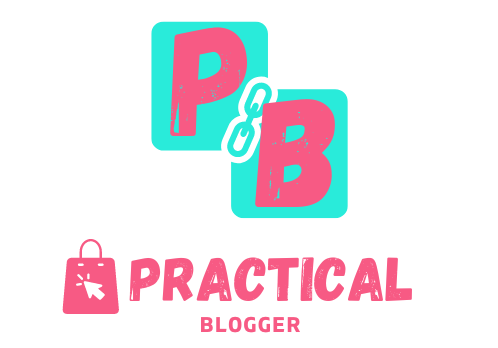Explore the world of online digital marketing with our comprehensive guide. Learn strategies, tips, and current trends to boost your online presence and achieve business success.
In today’s digital age, the success of any business heavily relies on its online presence. Whether you’re a startup or an established corporation, leveraging online digital marketing is essential to connect with your target audience, drive traffic, and increase conversions. This comprehensive guide will take you on a journey through the dynamic landscape of online digital marketing, providing you with strategies, tips, and insights to help you achieve your marketing goals.
- Grow Your Marketing Business with GoHighLevel! Learn How Below.
- What is Online Digital Marketing?
- The Importance of Online Digital Marketing
- Grow Your Marketing Business with GoHighLevel! Learn How Below.
- 1. Search Engine Optimization (SEO)
- 2. Content Marketing
- 3. Social Media Marketing
- 4. Email Marketing
- Grow Your Marketing Business with GoHighLevel! Learn How Below.
- 1. Voice Search Optimization
- 2. Video Marketing
- 3. Chatbots and AI
- 4. Interactive Content
- 5. User-Generated Content
- Grow Your Marketing Business with GoHighLevel! Learn How Below.
- 1. Key Performance Indicators (KPIs)
- 2. Analytics Tools
- 3. Conversion Tracking
- 4. A/B Testing
- Grow Your Marketing Business with GoHighLevel! Learn How Below.
- 1. Continuous Learning
- 2. Networking
- 3. Adaptability
- 4. Competitive Analysis
- 5. Data-Driven Decision Making
- Grow Your Marketing Business with GoHighLevel! Learn How Below.
- You might also like:
- Grow Your Business with GoHighLevel! Learn how below.
Chapter 1: Understanding Online Digital Marketing
Before diving into the strategies and tips, it’s crucial to have a solid understanding of what online digital marketing entails.
What is Online Digital Marketing?
Online digital marketing encompasses all the activities and efforts conducted by businesses and individuals to promote their products or services using digital channels. These channels include websites, search engines, social media platforms, email, content marketing, and more. The primary objective of online digital marketing is to reach, engage, and convert potential customers online.
The Importance of Online Digital Marketing
- Global Reach: With the internet’s global reach, online digital marketing allows you to connect with a vast audience worldwide.
- Cost-Effective: Compared to traditional marketing, digital marketing often offers a more cost-effective way to reach your target audience.
- Measurable Results: Digital marketing provides you with valuable data and analytics, allowing you to measure the success of your campaigns accurately.
- Targeted Marketing: You can precisely target your ideal audience based on demographics, interests, and behavior.
Now that you understand the significance of online digital marketing let’s explore various strategies and tips to help you succeed in this dynamic field.
Chapter 2: Essential Online Digital Marketing Strategies
1. Search Engine Optimization (SEO)
The Basics of SEO
Search Engine Optimization (SEO) is the process of optimizing your website to rank higher in search engine results pages (SERPs). It’s a fundamental component of online digital marketing as it helps improve your website’s visibility to potential customers.
Key SEO Tips
- Keyword Research: Identify relevant keywords and phrases that your target audience is searching for. Use tools like Google Keyword Planner to discover high-traffic keywords in your niche.
- On-Page Optimization: Optimize your website’s content, meta tags, and images with selected keywords. Ensure your website is mobile-friendly and has fast loading times.
- Quality Content: Create high-quality, informative, and engaging content that satisfies user intent. Content that provides value to users is more likely to rank well.
- Link Building: Build high-quality backlinks from reputable websites in your industry. Quality links can significantly boost your website’s authority.
- Technical SEO: Regularly audit your website for technical issues, such as broken links, duplicate content, and site speed. Addressing these issues improves user experience and search engine rankings.
2. Content Marketing
The Power of Content
Content marketing involves creating and distributing valuable, relevant, and consistent content to attract and engage a specific target audience. It’s an integral part of online digital marketing, driving organic traffic and building brand authority.
Key Content Marketing Tips
- Content Strategy: Develop a comprehensive content strategy that aligns with your business goals. Identify your target audience’s pain points and create content that addresses their needs.
- Diverse Content: Create various types of content, including blog posts, videos, infographics, podcasts, and ebooks, to cater to different preferences and channels.
- Consistency: Maintain a consistent posting schedule to keep your audience engaged and returning for more content.
- Optimize for SEO: Incorporate relevant keywords naturally within your content to improve search engine visibility.
- Promotion: Actively promote your content on social media, email marketing, and other digital channels to reach a broader audience.
3. Social Media Marketing
Leveraging Social Media
Social media marketing involves using social media platforms like Facebook, Instagram, Twitter, LinkedIn, and Pinterest to promote your products or services, build brand awareness, and engage with your audience.
Key Social Media Marketing Tips
- Platform Selection: Choose the social media platforms that align with your target audience and business goals. Each platform has its unique user demographics and engagement style.
- Engagement: Interact with your followers regularly by responding to comments, messages, and mentions. Foster a sense of community around your brand.
- Visual Content: Visual content, such as images and videos, tends to perform well on social media. Use eye-catching visuals to capture your audience’s attention.
- Advertising: Consider investing in social media advertising to reach a broader and highly targeted audience. Platforms offer various ad formats, including sponsored posts and stories.
- Analytics: Monitor the performance of your social media campaigns using analytics tools provided by the platforms. Adjust your strategies based on the data to optimize results.
4. Email Marketing
The Power of Email
Email marketing remains a potent tool for nurturing leads, retaining customers, and driving conversions. It involves sending targeted emails to your subscribers, delivering valuable content, and promoting your products or services.
Key Email Marketing Tips
- Segmentation: Divide your email list into segments based on demographics, behavior, or purchase history. Send tailored messages to each segment for better engagement.
- Personalization: Address subscribers by their names and create personalized email content. Personalization increases open rates and conversions.
- Automation: Use email marketing automation to send automated emails based on triggers, such as sign-ups, abandoned carts, or birthdays.
- A/B Testing: Experiment with different email subject lines, content, and call-to-action buttons to determine what resonates best with your audience.
- Compliance: Ensure your email marketing practices comply with relevant regulations, such as the CAN-SPAM Act or GDPR, to avoid legal issues.
Chapter 3: Emerging Trends in Online Digital Marketing
1. Voice Search Optimization
As voice-activated devices like Amazon Echo and Google Home gain popularity, optimizing your content for voice search is becoming increasingly important. Voice search queries are typically conversational and longer, so focus on natural language and long-tail keywords.
2. Video Marketing
Video marketing is booming, with platforms like YouTube and TikTok capturing massive audiences. Consider creating video content to engage your audience, share your brand’s story, and showcase your products or services.
3. Chatbots and AI
Chatbots and artificial intelligence can enhance customer service and engagement on your website and social media channels. They can answer frequently asked questions, provide recommendations, and assist with purchases, offering a seamless user experience.
4. Interactive Content
Interactive content, such as quizzes, polls, and surveys, is an effective way to engage your audience and gather valuable data. Interactive content encourages users to actively participate, increasing their connection to your brand.
5. User-Generated Content
Encourage your customers to create and share content related to your products or services. User-generated content builds trust and authenticity, as potential customers are more likely to trust their peers’ recommendations.
Chapter 4: Measuring Online Digital Marketing Success
1. Key Performance Indicators (KPIs)
Identify and track essential KPIs to measure the success of your online digital marketing campaigns. Some common KPIs include website traffic, conversion rate, click-through rate (CTR), customer acquisition cost (CAC), and return on investment (ROI).
2. Analytics Tools
Utilize digital marketing analytics tools like Google Analytics, Google Search Console, and social media analytics platforms to gather data, analyze performance, and make data-driven decisions.
3. Conversion Tracking
Implement conversion tracking on your website to monitor specific actions, such as form submissions, purchases, or downloads. This helps you understand how effectively your marketing efforts are driving conversions.
4. A/B Testing
Continuously test different elements of your campaigns, such as ad copy, landing pages, and email subject lines, to identify what works best for your audience and make improvements accordingly.
Chapter 5: Staying Ahead in Online Digital Marketing
1. Continuous Learning
The digital marketing landscape evolves rapidly. Stay updated with the latest trends, tools, and best practices by attending webinars, conferences, and online courses.
2. Networking
Build relationships with industry professionals, join online marketing communities, and participate in discussions. Networking can lead to valuable insights and collaborations.
3. Adaptability
Be prepared to adapt your strategies and tactics as the digital marketing landscape changes. What works today may not work tomorrow, so stay agile in your approach.
4. Competitive Analysis
Regularly analyze your competitors’ online marketing efforts to identify opportunities and stay ahead of the curve. Learn from their successes and failures.
5. Data-Driven Decision Making
Base your marketing decisions on data and insights rather than assumptions. Continuously analyze and refine your strategies to achieve better results.
Online Digital Marketing Guide: Overview
Online digital marketing is a dynamic and ever-evolving field, but with the right strategies and a commitment to staying informed, you can harness its power to achieve your business goals. Remember to optimize your website for search engines, create valuable content, engage with your audience on social media, and embrace emerging trends to stay competitive. By measuring your success and adapting to changes, you’ll be well on your way to digital marketing excellence.
Call-to-Action
Ready to take your online digital marketing to the next level? Get started by implementing the strategies and tips outlined in this guide. If you need expert guidance or assistance, our team of digital marketing professionals is here to help. Contact us today for a personalized consultation and let’s elevate your online presence together.
You might also like:
- GoHighLevel Snapshots for Sale: A Buyer’s Guide
- How to Create Snapshots in GoHighLevel to Save Time and Streamline Your Workflow
- GoHighLevel Login Tips and Tricks: The Ultimate Guide
- How to Use GoHighLevel to Grow Your Business
- How to Become a GoHighLevel Top Affiliate and Earn Passive Income
- GoHighLevel Pricing Plans: A Comprehensive Guide
- GoHighLevel Support: Get Help 24/7







